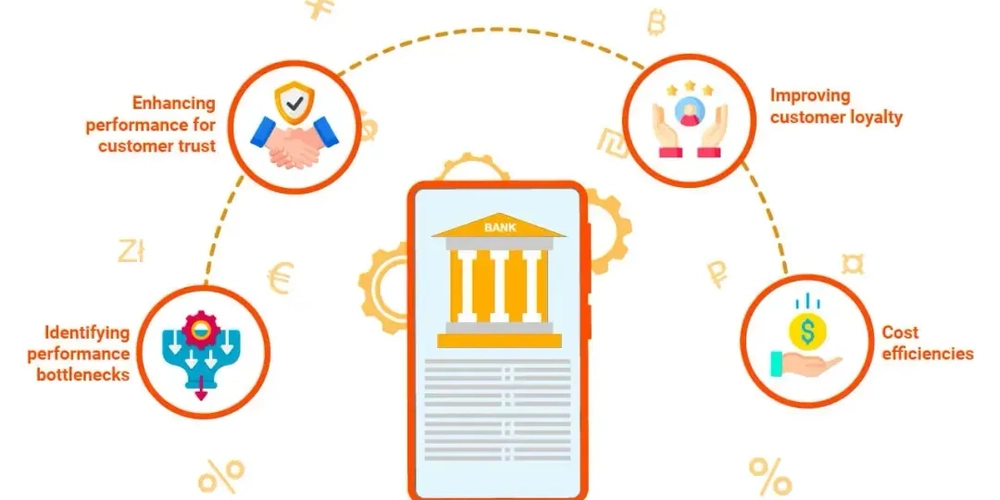Cloud Managed Services: Empowering Your Digital Transformation Journey
In today’s hyperconnected world, businesses are racing to embrace digital transformation. Whether it's optimizing operations, enhancing customer experiences, or innovating business models, the cloud plays a pivotal role. However, navigating the complex world of cloud technologies requires expertise, continuous management, and strategic foresight. That’s where Cloud Managed Services come into play — empowering organizations to not only adopt the cloud but to thrive in it. What Are Cloud Managed Services? Cloud Managed Services refer to the outsourcing of daily IT management for cloud-based services and technical support to enhance business operations. These services ensure that an organization's cloud infrastructure — whether public, private, or hybrid — is continuously monitored, optimized, secure, and cost-efficient. Providers of cloud managed services offer a wide range of solutions including: Infrastructure Management Cloud Migration Support Monitoring and Reporting Security and Compliance Backup and Disaster Recovery Performance Optimization Application and Database Management By leveraging these services, businesses can reduce operational complexity, lower costs, and free up internal teams to focus on core business innovation. Why Cloud Managed Services Matter in Digital Transformation Digital transformation is not just about moving to the cloud; it’s about reimagining processes, systems, and customer experiences. Managed services help enterprises accelerate this transformation by: 1. Enabling Scalability and Agility Digital transformation demands flexibility. Cloud managed services allow businesses to scale infrastructure up or down based on evolving needs without the burden of physical hardware or internal resource constraints. 2. Ensuring Continuous Optimization The cloud is dynamic. Without regular tuning, cloud environments can become inefficient and costly. Managed services include performance monitoring, cost optimization, and automated updates to ensure your infrastructure always aligns with business objectives. 3. Reducing Operational Risk Cyber threats, system outages, and compliance violations can derail digital transformation efforts. Cloud managed service providers (MSPs) proactively monitor for security vulnerabilities, enforce best practices, and maintain business continuity through disaster recovery planning. 4. Enhancing Innovation By offloading routine maintenance, your in-house IT teams can focus on innovation — building new services, enhancing digital customer touchpoints, and driving business growth. Key Benefits of Cloud Managed Services Let’s dive deeper into the specific benefits that make cloud managed services a cornerstone of successful digital transformation: Cost Efficiency Moving to the cloud reduces capital expenditures, but managing the cloud efficiently is what controls operational costs. MSPs help optimize resource usage, eliminate unnecessary services, and provide predictable pricing models through subscriptions or pay-as-you-go structures. 24/7 Monitoring and Support Round-the-clock support ensures minimal downtime and rapid incident response. This continuous oversight is especially crucial for industries with high availability demands such as e-commerce, finance, and healthcare. Access to Expertise Cloud environments require specialized skills across platforms like AWS, Microsoft Azure, Google Cloud, and Oracle Cloud. With managed services, businesses gain access to certified experts without the expense of hiring full-time specialists. Improved Security Posture Security is a top concern in digital transformation. MSPs implement and manage firewalls, encryption, intrusion detection systems, access controls, and compliance audits to safeguard your cloud ecosystem. Compliance Readiness Industries such as healthcare, finance, and government are governed by strict compliance standards like HIPAA, GDPR, and PCI-DSS. Cloud MSPs help you maintain continuous compliance with automated tools, audits, and documentation. Use Cases: How Businesses Are Leveraging Cloud Managed Services Healthcare Hospitals and clinics use cloud managed services to ensure electronic health records (EHRs) are accessible, secure, and compliant with HIPAA regulations, while also enabling telemedicine and patient portals. Retail Retailers benefit from cloud services for real-time inventory management, omnichannel experiences, and data-driven marketing — all managed seamlessly without IT overhead. Enterprise IT Large enterprises often operate hybrid or multi-cloud environments. Managed services bring cohesion, visibility, and performance tuning across these complex ecosystems. Financial Services Banks and fintech companies rely on MSPs to ensure secure transactions, disaster recovery, and compliance

In today’s hyperconnected world, businesses are racing to embrace digital transformation. Whether it's optimizing operations, enhancing customer experiences, or innovating business models, the cloud plays a pivotal role. However, navigating the complex world of cloud technologies requires expertise, continuous management, and strategic foresight. That’s where Cloud Managed Services come into play — empowering organizations to not only adopt the cloud but to thrive in it.
What Are Cloud Managed Services?
Cloud Managed Services refer to the outsourcing of daily IT management for cloud-based services and technical support to enhance business operations. These services ensure that an organization's cloud infrastructure — whether public, private, or hybrid — is continuously monitored, optimized, secure, and cost-efficient.
Providers of cloud managed services offer a wide range of solutions including:
- Infrastructure Management
- Cloud Migration Support
- Monitoring and Reporting
- Security and Compliance
- Backup and Disaster Recovery
- Performance Optimization
- Application and Database Management
By leveraging these services, businesses can reduce operational complexity, lower costs, and free up internal teams to focus on core business innovation.
Why Cloud Managed Services Matter in Digital Transformation
Digital transformation is not just about moving to the cloud; it’s about reimagining processes, systems, and customer experiences. Managed services help enterprises accelerate this transformation by:
1. Enabling Scalability and Agility
Digital transformation demands flexibility. Cloud managed services allow businesses to scale infrastructure up or down based on evolving needs without the burden of physical hardware or internal resource constraints.
2. Ensuring Continuous Optimization
The cloud is dynamic. Without regular tuning, cloud environments can become inefficient and costly. Managed services include performance monitoring, cost optimization, and automated updates to ensure your infrastructure always aligns with business objectives.
3. Reducing Operational Risk
Cyber threats, system outages, and compliance violations can derail digital transformation efforts. Cloud managed service providers (MSPs) proactively monitor for security vulnerabilities, enforce best practices, and maintain business continuity through disaster recovery planning.
4. Enhancing Innovation
By offloading routine maintenance, your in-house IT teams can focus on innovation — building new services, enhancing digital customer touchpoints, and driving business growth.
Key Benefits of Cloud Managed Services
Let’s dive deeper into the specific benefits that make cloud managed services a cornerstone of successful digital transformation:
Cost Efficiency
Moving to the cloud reduces capital expenditures, but managing the cloud efficiently is what controls operational costs. MSPs help optimize resource usage, eliminate unnecessary services, and provide predictable pricing models through subscriptions or pay-as-you-go structures.
24/7 Monitoring and Support
Round-the-clock support ensures minimal downtime and rapid incident response. This continuous oversight is especially crucial for industries with high availability demands such as e-commerce, finance, and healthcare.
Access to Expertise
Cloud environments require specialized skills across platforms like AWS, Microsoft Azure, Google Cloud, and Oracle Cloud. With managed services, businesses gain access to certified experts without the expense of hiring full-time specialists.
Improved Security Posture
Security is a top concern in digital transformation. MSPs implement and manage firewalls, encryption, intrusion detection systems, access controls, and compliance audits to safeguard your cloud ecosystem.
Compliance Readiness
Industries such as healthcare, finance, and government are governed by strict compliance standards like HIPAA, GDPR, and PCI-DSS. Cloud MSPs help you maintain continuous compliance with automated tools, audits, and documentation.
Use Cases: How Businesses Are Leveraging Cloud Managed Services
Healthcare
Hospitals and clinics use cloud managed services to ensure electronic health records (EHRs) are accessible, secure, and compliant with HIPAA regulations, while also enabling telemedicine and patient portals.
Retail
Retailers benefit from cloud services for real-time inventory management, omnichannel experiences, and data-driven marketing — all managed seamlessly without IT overhead.
Enterprise IT
Large enterprises often operate hybrid or multi-cloud environments. Managed services bring cohesion, visibility, and performance tuning across these complex ecosystems.
Financial Services
Banks and fintech companies rely on MSPs to ensure secure transactions, disaster recovery, and compliance with financial regulations, while delivering seamless customer digital experiences.
Choosing the Right Cloud Managed Services Partner
Selecting a reliable cloud managed service provider is crucial for long-term success. Here are a few criteria to consider:
- Certifications & Partnerships (e.g., AWS Partner, Microsoft Gold Partner, Oracle Cloud Expertise)
- Proven Track Record in your industry
- 24/7 Support & SLA Guarantees
- Security and Compliance Focus
- Customizable Service Packages
- Transparency in Monitoring and Reporting
Ask for case studies, service level agreements (SLAs), and a roadmap tailored to your transformation goals before committing.
Conclusion: Future-Proof Your Business with Cloud Managed Services
Digital transformation is not a one-time event — it’s an ongoing journey. To stay competitive, agile, and secure in a cloud-first world, businesses must rely on more than just cloud adoption — they need expert cloud management.
Cloud Managed Services bridge the gap between technological potential and business success. By partnering with a trusted MSP, organizations can fast-track their transformation, reduce complexity, and unlock innovation at scale.




























![[Webinar] AI Is Already Inside Your SaaS Stack — Learn How to Prevent the Next Silent Breach](https://blogger.googleusercontent.com/img/b/R29vZ2xl/AVvXsEiOWn65wd33dg2uO99NrtKbpYLfcepwOLidQDMls0HXKlA91k6HURluRA4WXgJRAZldEe1VReMQZyyYt1PgnoAn5JPpILsWlXIzmrBSs_TBoyPwO7hZrWouBg2-O3mdeoeSGY-l9_bsZB7vbpKjTSvG93zNytjxgTaMPqo9iq9Z5pGa05CJOs9uXpwHFT4/s1600/ai-cyber.jpg?#)











































































































































![[The AI Show Episode 144]: ChatGPT’s New Memory, Shopify CEO’s Leaked “AI First” Memo, Google Cloud Next Releases, o3 and o4-mini Coming Soon & Llama 4’s Rocky Launch](https://www.marketingaiinstitute.com/hubfs/ep%20144%20cover.png)





























































































































![[FREE EBOOKS] Machine Learning Hero, AI-Assisted Programming for Web and Machine Learning & Four More Best Selling Titles](https://www.javacodegeeks.com/wp-content/uploads/2012/12/jcg-logo.jpg)








































































![Rogue Company Elite tier list of best characters [April 2025]](https://media.pocketgamer.com/artwork/na-33136-1657102075/rogue-company-ios-android-tier-cover.jpg?#)








































































_Andreas_Prott_Alamy.jpg?width=1280&auto=webp&quality=80&disable=upscale#)





























































































![What’s new in Android’s April 2025 Google System Updates [U: 4/18]](https://i0.wp.com/9to5google.com/wp-content/uploads/sites/4/2025/01/google-play-services-3.jpg?resize=1200%2C628&quality=82&strip=all&ssl=1)










![Apple Watch Series 10 Back On Sale for $299! [Lowest Price Ever]](https://www.iclarified.com/images/news/96657/96657/96657-640.jpg)
![EU Postpones Apple App Store Fines Amid Tariff Negotiations [Report]](https://www.iclarified.com/images/news/97068/97068/97068-640.jpg)
![Apple Slips to Fifth in China's Smartphone Market with 9% Decline [Report]](https://www.iclarified.com/images/news/97065/97065/97065-640.jpg)


































































































































